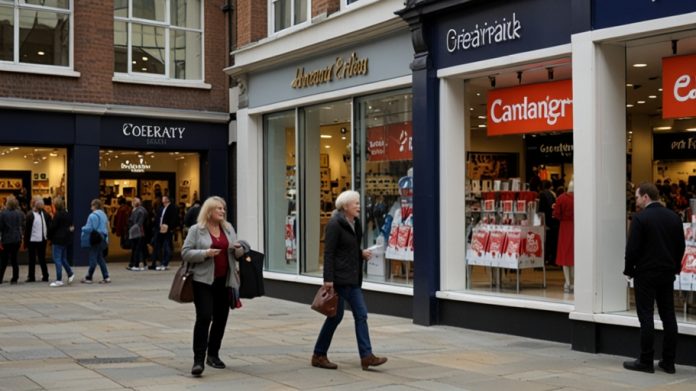The largest retail business in the UK reported a very significant profit drop as the existing living cost crisis, which keeps on happening, is said to be impacting consumer spending. The company, with its many nationwide stores, has stated the narrowing of the discretionary spending and the increasing operational costs as the primary causes for the downturn.
According to the recently published financial document of the retailer, a 25% decline in annual pre-tax profits was suffered in comparison to the previous year. Even though the overall revenue recorded a slight increase, a number of adverse events, such as a shortage of energy causing higher prices of energy, wage inflation, and supply chain disruptions, have led to a significant margin decrease, thus, more pressure on the business.
The CEO of the retailer recognized that the economy is facing difficulties with the mode that the consumers are choosing to shop. The consumers, having the household budget too shrink because of the inflation that has surged and wages that remain flat, are opting for the necessary products over the non-necessary ones. The situation has caused a sharp decrease in the categories of clothing, home goods, and electronics.
To align the company with the changed environment, a set of actions has been unveiled by the company, the main of which is the introduction of a wider spectrum of value-focused products and price-cutting strategies. The CEO stressed that the company will concentrate primarily on the pricing that is within customers’ reach in order to ensure the loyalty of customers during this unkind period.
However, many analysts still do not want to jump the gun with the retailer’s expectations. They advise that the continued uncertain economic situation and the high interest rate might lead to a further reduction in customer confidence. Thus, the company could struggle to recover the lost ground in the short term.
Furthermore, the company is dealing with the challenge of higher operational costs from energy bills and wage increases for store staff. Although such measures are a must to allow employees to retain their livelihoods and keep operations running, they still have imposed a very significant burden on profitability.
To counter the issues, the retailer has quickened the pace of the digital transition. During the tough times, online sales have been quite stable, and the company has set new goals to invest more in e-commerce platforms and logistics to drive the business in this sector.
The head of the company has made it clear that they are confident in the positive long-term prospects despite the headwinds the business is currently experiencing. They are counting on ongoing investments in technology, sustainability, and consumer experience projects to put the company in a good position to win when the economic situation starts to improve.
The retail experts have been analyzing the situation and have argued that the difficulties observed at the retailer’s are not just an isolated incident but rather a reflection of the whole UK retail industry. Many businesses are in the same situation when having to cope with the dwindling buying power of customers and their escalating business costs.
This crisis of living which implies inflation has occasioned a massive change in shoppers’ habits as the consumer public more and more resorts to discount retailers and private-label products. Consequently, the competition, which has been fermented from this source, eventually necessitates swift adaptation to the industry by the incumbent players. Otherwise, they will definitely cede market share.
Even so, government statistics reveal an undeniably high inflation rate of 6.2%, which is mainly conditioned by the exorbitant figures for food and energy items. Although they have taken fiscal steps to alleviate the financial burden on households, the effect of these measures has so far been restricted.
The retailer’s leadership has made a plea to the government for greater assistance that doesn’t leave out businesses and consumers. On the grounds of the targeted interventions, they maintain that it would be possible to stabilize the economy and, at the same time, give back the trust of the shoppers and the companies.
This company is certainly among the top retailers in the UK, and its performance serves as an indicator for the entire retail sector. As it is in the middle of a hard time, it is clear that the hurdles which the businesses are undergoing cut through various sectors and the uncertainty of the economic landscape has turned the situation even worse.
Despite standing amid the uncertainty, the retailer is adamant about its plan of surpassing these rocky times through innovation, adaptability, and a refocus of the customer service area. These next months will play a decisive role in revealing whether the company’s efforts will be the way out of this situation, which is not promising yet due to the ongoing economic pressures.



 Bitcoin
Bitcoin  Ethereum
Ethereum  Tether
Tether  XRP
XRP  Solana
Solana  USDC
USDC  Cardano
Cardano  TRON
TRON  Lido Staked Ether
Lido Staked Ether  Avalanche
Avalanche  Toncoin
Toncoin